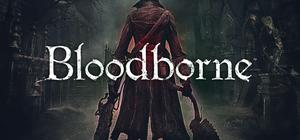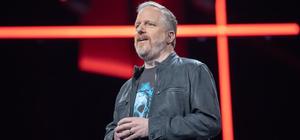Ex-PlayStation Boss Says the Console Wars Are a Dead End. Is He Right?
Ever feel like the hype for the next big console is a little... samey? Shinier graphics, faster loading, more teraflops you can’t really explain to your parents. Well, you’re not alone. Shawn Layden, the former head of PlayStation and a guy who knows a thing or two about selling consoles, just dropped a truth bomb on the whole industry: he thinks we’re stuck.
In a series of recent interviews, Layden basically said the quiet part out loud. The race for technological supremacy that has defined the console wars for decades? He thinks it’s over, and continuing to run it is a fool's errand. Let’s break down what he said and why it’s a massive deal.
The Graphics Treadmill to Nowhere
Layden’s core argument is that we’ve hit a “technological plateau.” Think about it. The jump from the blocky characters of the original PlayStation to the worlds of the PS2 felt like witchcraft. The leap from PS4 to PS5? It’s nice, sure. The reflections are crispier, the load times are zippier. But it’s not the same reality-altering leap. It’s a classic case of diminishing returns.
The real kicker, though, is the cost. Layden points out that the price of making a blockbuster AAA game has been doubling with each console generation. That financial pressure makes publishers terrified to take risks. Why bet the farm on a weird new idea when you can just release another sequel you know will sell? This obsession with 4K, 120fps, and ray tracing is creating a development environment that’s not just expensive; it’s creatively suffocating.
The Answer? Make It Cheaper and Simpler
So what's the solution? According to Layden, it's time to look at the other guy in the room-the one who showed up to a gunfight with a banana and is somehow winning. He’s talking about Nintendo.
Layden points to the Nintendo Switch as the blueprint for the future. Nintendo completely ignored the arms race. They didn't try to build the most powerful machine; they built a fun one. By focusing on a unique concept and killer games, they created a console that your hardcore gamer cousin and your grandma both own. Layden's mantra is simple: “Make it cheaper and simpler. Let’s do that instead.” He argues this is the only way to grow the gaming audience beyond its current bubble.
Is Xbox the Next Sega?
Here’s where the take gets extra spicy. Layden turned his sights on Microsoft and made a comparison that probably had some Xbox executives sweating. He suggested that Team Xbox might be at a “fork in the road,” similar to where Sega was after the Dreamcast.
For those who weren't there, Sega made a fantastic console with the Dreamcast, but it couldn't compete with the PlayStation 2 juggernaut. So, they made a brutal choice: they quit the hardware business and became a third-party software publisher. And you know what? It worked. They’re still making amazing games today.
Layden implies Microsoft could benefit from a similar pivot. Despite pouring billions into hardware, they haven't managed to dethrone PlayStation. Their real power lies in their software empire, especially after gobbling up giants like Bethesda and Activision Blizzard. The question is, does Microsoft’s future lie in selling more Xboxes, or in getting Game Pass, Call of Duty, and The Elder Scrolls onto every screen on the planet, regardless of who made the box it runs on?
What This Means For Us, The Players
Honestly, a future guided by Layden’s thinking could be pretty sweet. It might mean an end to the most toxic parts of the console wars. It could lead to more affordable hardware and a flood of more creative, less graphically-obsessed games. If Microsoft takes the hint, it could signal the end of major console exclusives, which is either a dream or a nightmare depending on who you ask.
At the end of the day, a former industry titan is calling for a massive vibes shift. He’s arguing for a future that’s more accessible, more sustainable, and ultimately, more focused on the games themselves. And it's hard to argue with that.






